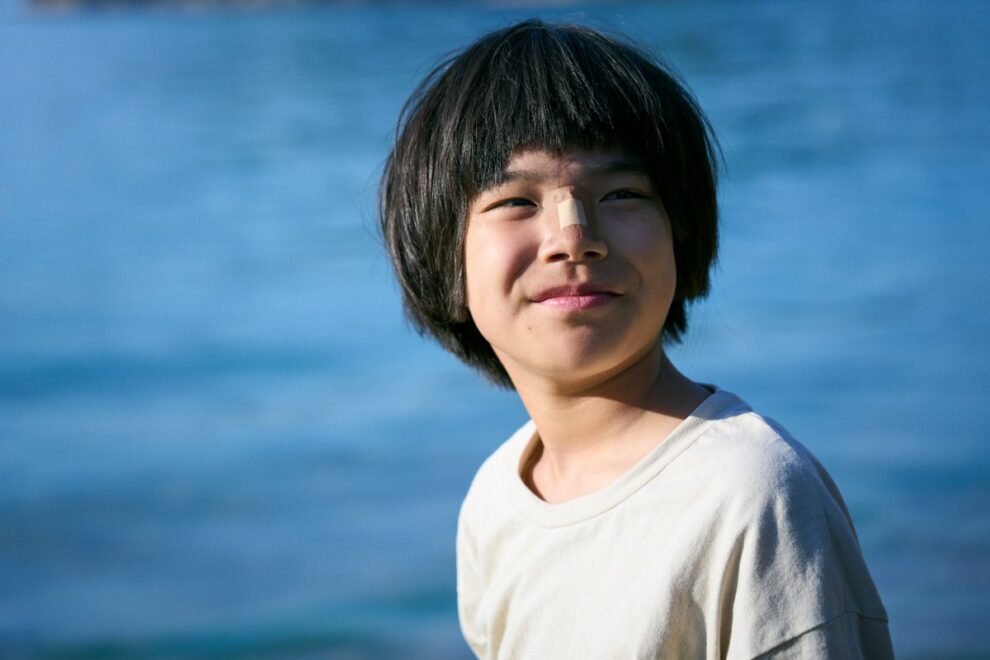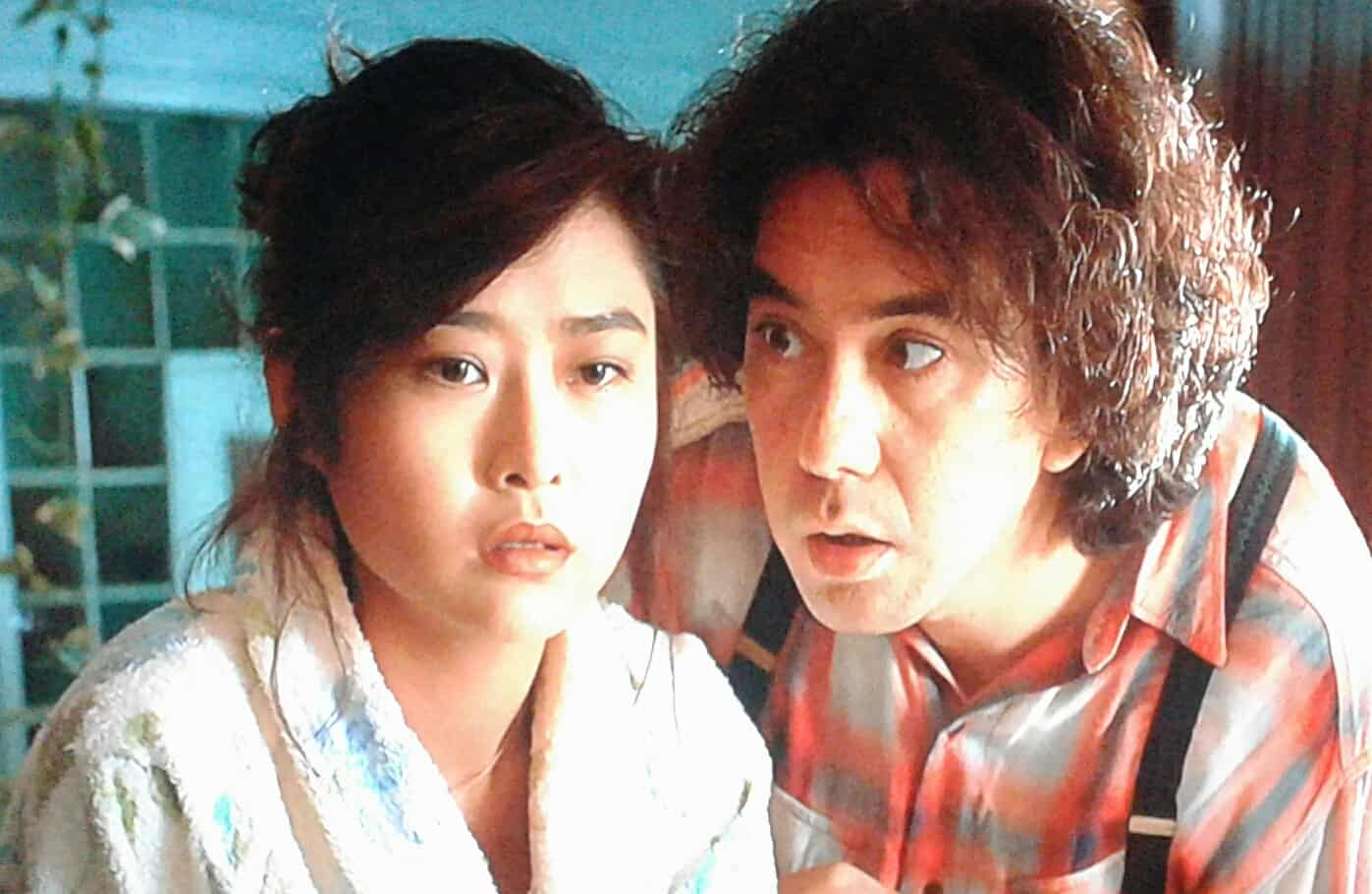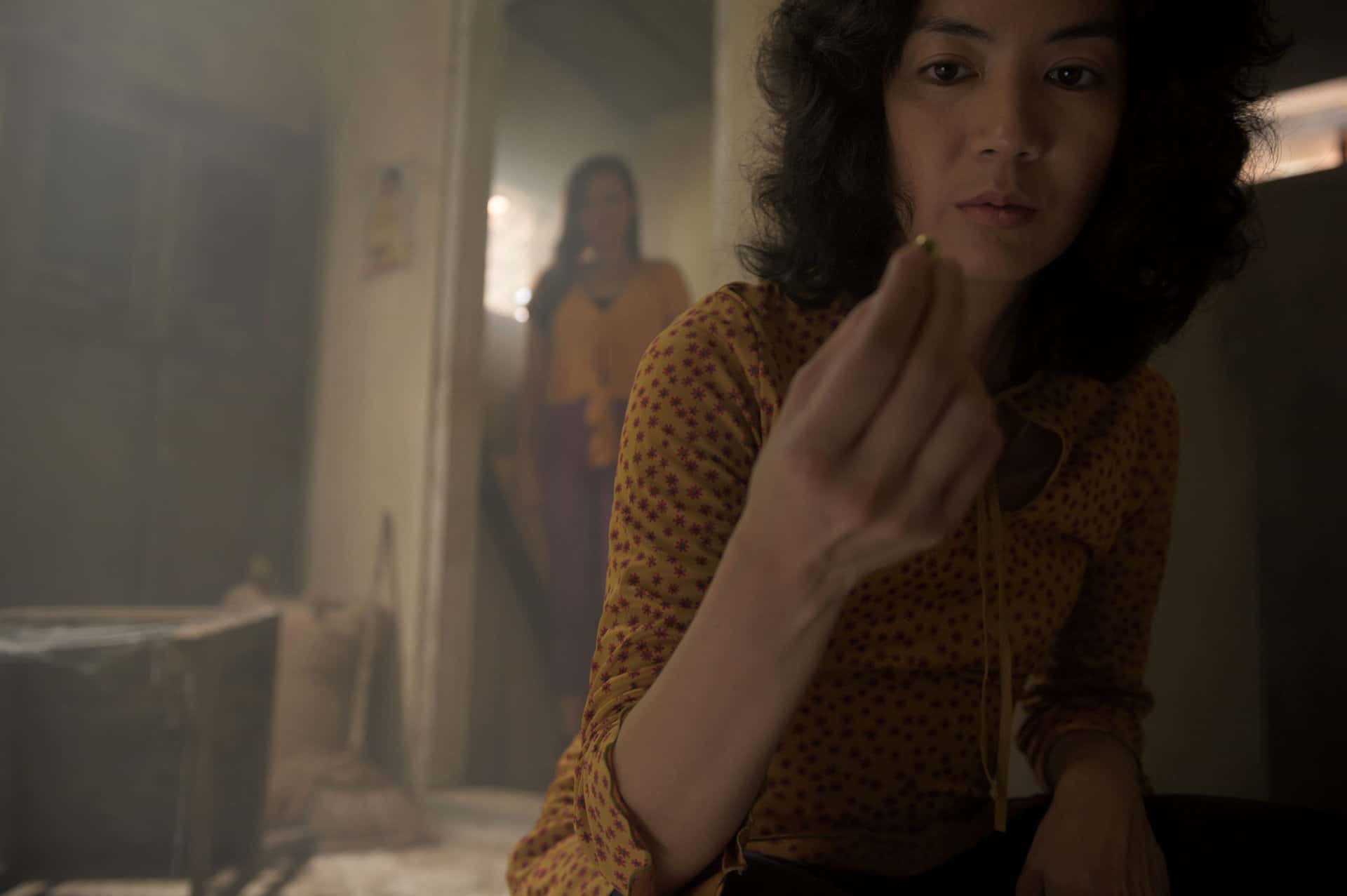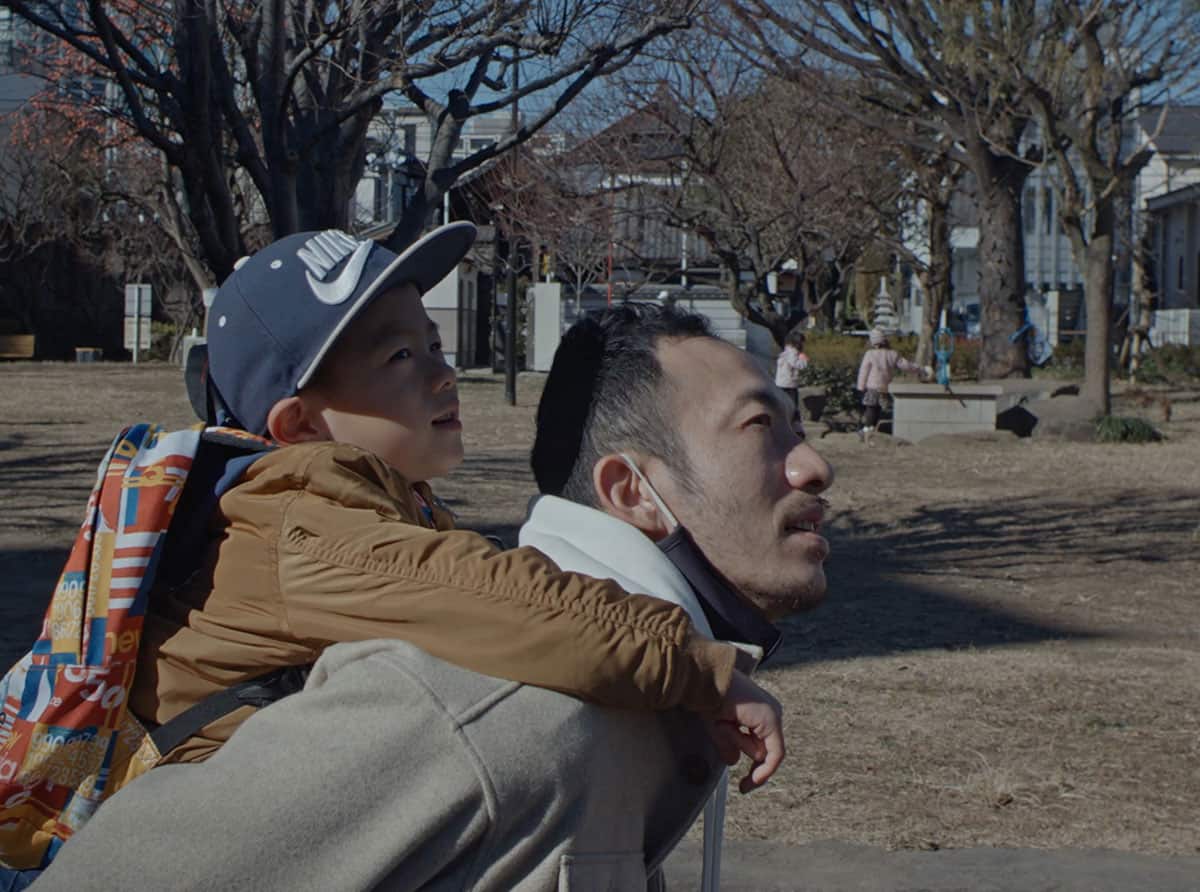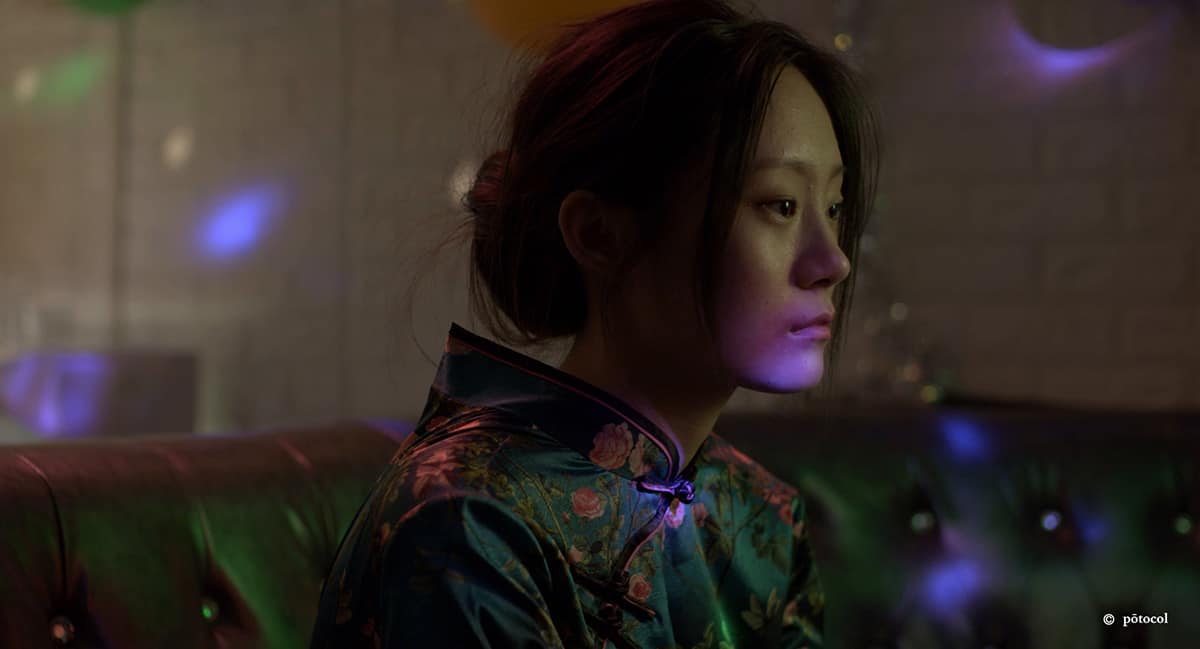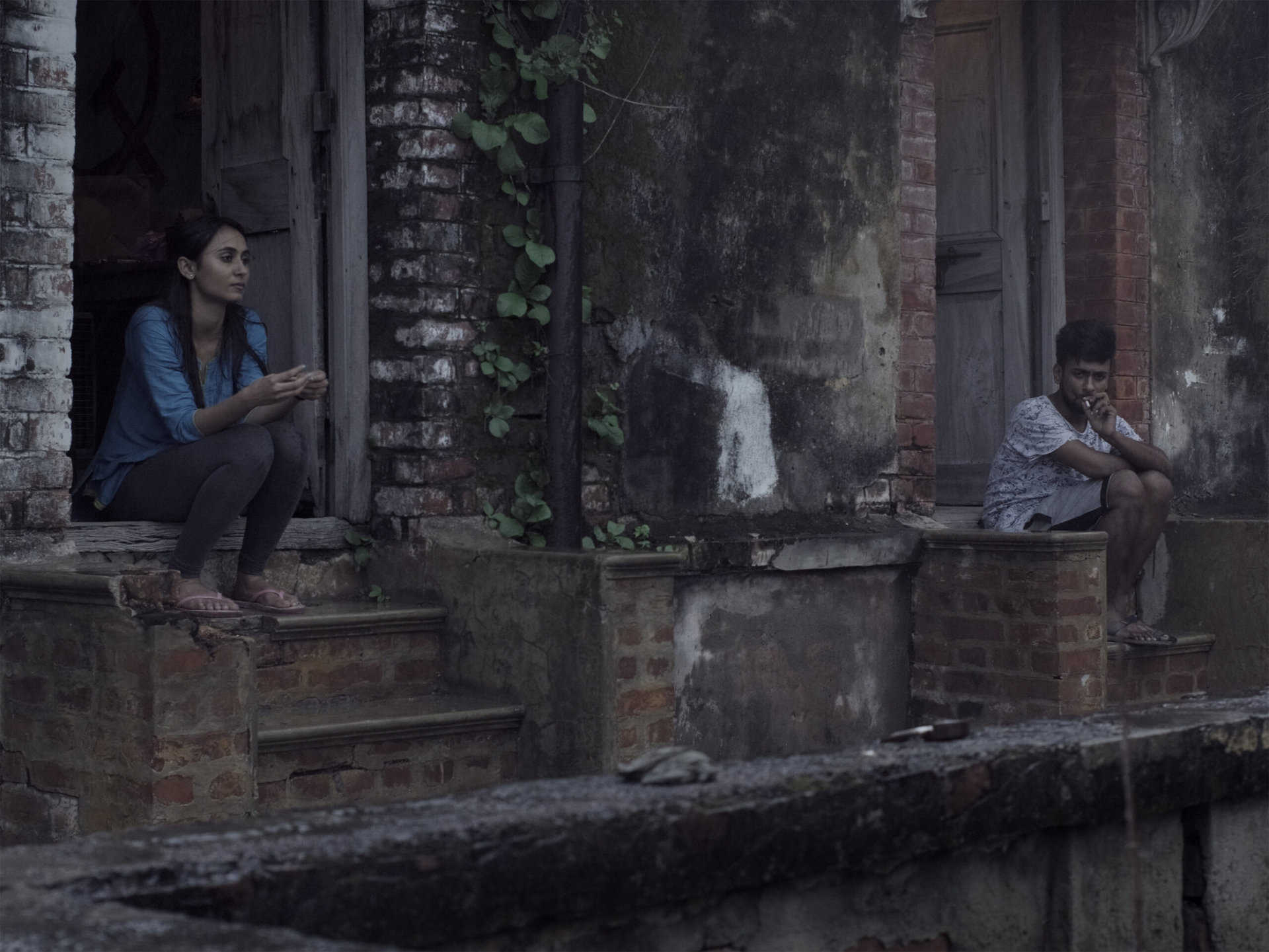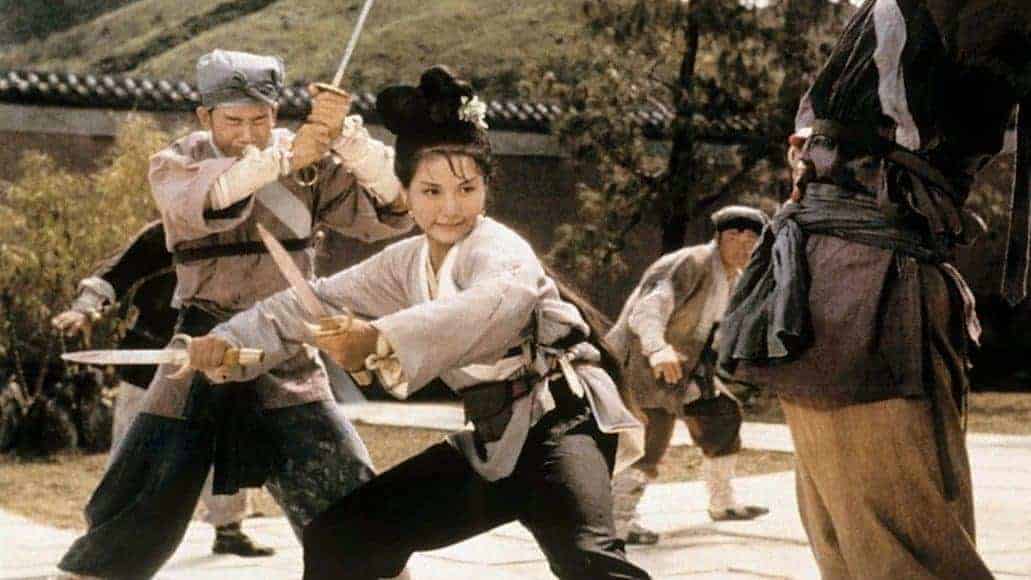Coming-of-age dramas often focus on challenges that affect us all and how they can be overcome. But Yusuke Morii's “Amiko” focuses very much on a child that isn't like anyone else, and as such, those around her don't know how to deal with her, as a story of a unique life sees a unique comedy in a strong directorial debut.

Amiko (Kana Osawa) lives in a suburb of Hiroshima with her father (Arata Iura), pregnant mother (Machiko Ono) and older brother. They have what appears to be a very simple life of a young family, with a humble father, diligent mother and caring older brother for his eccentric and enthusiastic little sister. But tragic events strike, and the family all have their lives shaken up. All that is, apart from the naïve and bright-eyed Amiko.
While the rest of the family show clear signs of grief, Amiko is still the happy-go-lucky child she always was, and her parents find her ways of dealing with adversity inappropriate. Her heart is in the right place, her parents almost feel mocked by her actions, and friends at school start to give her the cold shoulder, finding her overbearing. Her brother now a delinquent, Ahwe parents take drastic action to deal with her, with Amiko very much left on her own…with the imaginary characters in her mind.
A very personal account, this hones in on Osawa's face – for which she is brilliantly cast – as a window into her interesting mind. Amiko chooses to focus on people's sources of embarrassment: her mother's facial mole; her brother's bald spot. Despite her brother's protests, she continues to stare and point out people's weaknesses, losing friends along the way.
Osawa plays the role with glee, but with a depth that suggests an internal battle between natural reaction and striving for positivity in the face of adversity. It is this naivety that makes her so likeable for an outsider, but a constant pest for the people in her life. Her mother soon finds her burdensome, while her father simply wants a simple life, and so gradually her playfulness becomes ignored; her brother now more or less absent.
The dark grief of the family, however, is contrasted by light comedy, typically coming from Amiko herself. Her strange behaviour brings with it bright laughs, while her family are doom and gloom. Ichiko Aoba's constant soundtrack of background noise informs our emotions, with playful pianos, empty wind pipes and disturbing static, as Morii pulls you left and right.
This has the feel of Shinji Somai's “Ohikkoshi” (1993), with Osawa having a similar boldness to that of Tomoko Tabata's Renko, and an ending that wakens the realisation of being alone on entering the water. But Osawa also has the extraordinary quirks of Kengo Kora's Yonosuke in Shuichi Okita's “A Story of Yonosuke” (2012).
Amiko lacks a maturing: life's events far from modifying her behaviour, unaware how she impacts on others. But, with a climax cold and harsh yet joyful and content, Osawa and Morii give mature debut performances, able to switch between emotions to affect us all.


